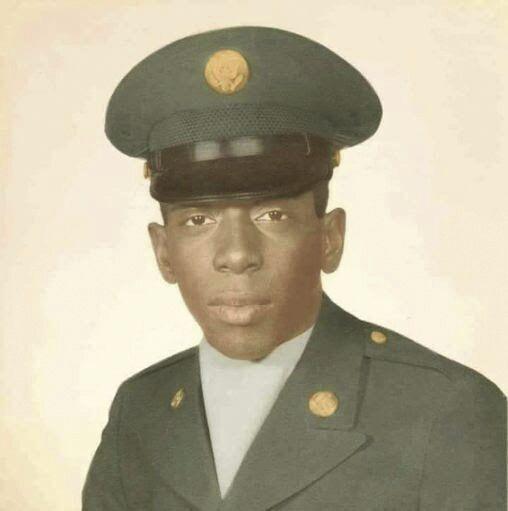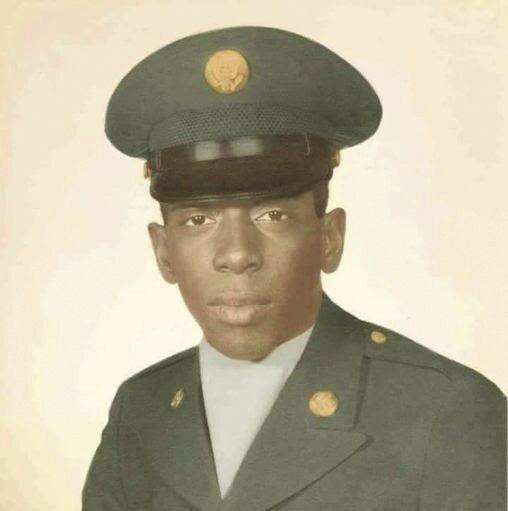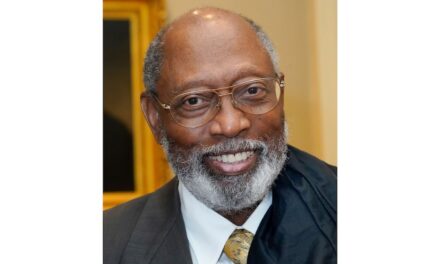
Several Benton residents and members of the Ralph Bunche Community are working towards changing the name of Dixie Street to Fuller Street. Leading the push for the change are brother and sister Rodney and Rebecca Wine and Vernicesa Lee, who all three grew up on Dixie Street in Benton’s historic black community, known as Ralph Bunche, formerly Gravel Hill before it was changed to Southside and renamed again to honor Dr. Ralph Bunche – the first African-American to win the Nobel Peace Prize.
During segregation, black students attended Ralph Bunche School while white students attended Benton Public Schools. Desegregation began in Benton in 1965, and the Wines were two of the first black students to attend a Benton public school.
C.J. Fuller, of Benton, was 19 years old in 1966 when he was sent to Vietnam and became Corporal Fuller.
“C.J. is the only soldier from our community that died in Vietnam; his family is the only Gold Star family in our community,” said Rodney. “It’s not even about the racist part, about the Dixie Street name. It’s just that he lived on that street. If he lived on Jones Street, we would be trying to rename Jones Street. But he didn’t. He lived on Dixie.”
While overseas, Fuller was killed by friendly fire, making his family the only Gold Star Family in the Ralph Bunche Community.
“My brother James was in that war; he came back, but C.J. didn’t,” said Rebecca. “We want to change the name of the street from something dishonorable to something honorable. When I think of the word Dixie, it brings back slavery, it brings back segregation, it brings back what was done to my ancestors.”
They have already begun the process of changing the street’s name, which the City of Benton created in 2016 by passing an ordinance after residents in the Ralph Bunche Community began requesting it.
Under the ordinance, only Benton residents, property owners, or groups comprised exclusively of residents may submit a petition to rename a street.
For residential areas, petitioners must reside on the street in question, while in commercially zoned areas, petitioners must own and operate a business on the street.
The first step is getting more than 50% of Dixie Street property owners to sign a petition supporting the change. Organizers easily reached that mark by quickly reaching the 50% plus one requirement after filing the request with Benton’s Office of Community Development.
Now, the Benton Planning Commission will hold a public hearing on the petition to rename Dixie Street to Fuller Street at 6 p.m. on January 7, 2025, at 114 South East Street.
During the hearing, the commission considers various factors when deciding whether to approve the name change. These factors include the financial impact on residents, the preferences of those living on the street, the historical significance of both the current and proposed names, and adherence to city naming rules, including potential conflicts with existing street names and character limits for signage, according to the ordinance.
If the Planning and Zoning Commission approves the petition, it is then forwarded to the City Council for final consideration. Should the City Council pass the ordinance, the city’s Office of Community Development will notify relevant government offices, property owners, and residents about the change at no additional cost to the petitioner. However, the petitioners bear the initial costs associated with public notices, mailings, and signage.
In 2016, petitioners reached the stage of City Council approval, but the council members at the time voted the ordinance to change the street name down.
If a petition is denied—whether due to insufficient compliance with notification requirements, a lack of majority support from property owners or rejection by the City Council—no petition for that street may be resubmitted for 12 months from the date of denial.
Carl Fuller, C.J.’s brother, who still lives on Dixie Street, submitted the petition with Lee and Rebecca.
“His family still lives there, and I think we have reached a generation where it looks like Saline County has changed, maybe a little a bit. Now we can take a stand and change that name. We have seen people change things all of my life. We wish we could call this simple but it has been very tedious, and we will get it done. We had a certain amount of time to get the correct number of signatures (By December 7) and we have already done that,” added Rebecca.
Lee said she got involved when she saw how Rodney’s tenacity and dedication to getting the street name changed.
“Even though I grew up on Dixie, the name Dixie, and because of its connotation, I support changing the name to Fuller. When you go to that street once it’s changed to Fuller, it will be history; it will be something you can tell your children and your grandchildren,” said Lee.
Rodney shared memories of the Fuller family from his childhood.
“I did not know him. I was 9 when he was killed, but I did know his mother. His mother was the only person in the community who would let us play football in their yard. We dubbed it Fuller Stadium. She was very nice. Her other son is named Carl Fuller, and he’s the only one that’s still alive and lives at the same address he did when he was a kid,” said Rodney. “I’m dyslexic, I was a D student in school, I’m a nobody, but something told me I was prepared for this moment when I was 9 years old. I was there on my bicycle when the Army Chaplin told Mrs Fuller her son was dead. I was there when they took him to the cemetery. I was afraid to go when I was 9, but watched them come down the street. I heard the 21-gun salute; I heard all of that.”
The Wines’ mother, Margaret Barnes Wine, was an activist deeply involved in the Civil Rights Movement of the 1960s.
“Our parents tried and were very successful at changing a lot of things. I remember my mother and them integrating the dance school in Downtown Benton, and they would one by one send their kids to the school,” said Rebecca. “There were numerous things we couldn’t do back then, but by sending us over to the white schools, they knew we would get a better education because of the books they had there, which we didn’t have at the Ralph Bunche school. That’s why my brother and I were in the first group of students to be integrated into Benton Public Schools.”


